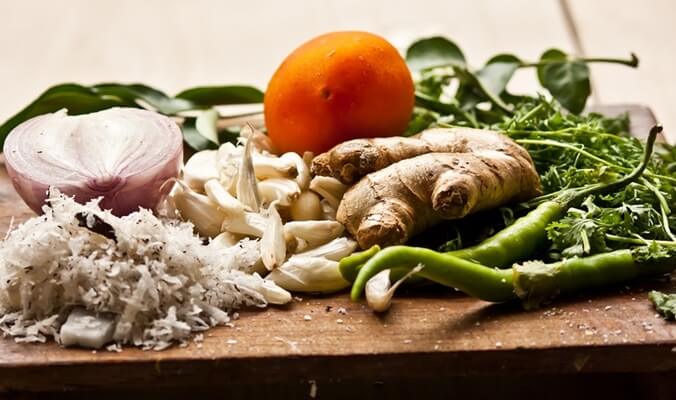Ayurvedic Guide Through Summer

©
According to Indian Medical Science, the year is divided into two periods (cold and warm) and six seasons defined by the position of the sun. The warm period, when the sun is more towards the north, is called Uttaryana in Sanskrit and is the time of dehydration for the body. It stretches from January to July:
Seasons:
- Sisira (late winter) – January – March
- Vasanta (spring) – March – May
- Greeshma (summer) – May – July
The cold period, when the sun is cool and weak and more towards the south, is called Dakshninayana and marks the time of hydration.
Seasons:
- Varsha (rainy season) – July – September
- Sharad (autumn) – September – November
- Hemanta (early winter) – November – December
Feel Well, Eat Well…
Foods generally have a heating or cooling quality. Depending on your dosha body-type, the season and the actual weather you should adjust your diet on a daily basis. For example, if it is a cold day during summer, try to eat more heating foods. If you feel rather hot on a given day, turn to cooling foods for your meals.
Eat food that is sweet in taste, light in nature and highly liquid. Sunrays become powerful during the summer season. Kapha decreases and Vata increases day by day – so according to Ayurveda, it’s highly recommendable to follow a diet that pacifies Pitta and Vata. Eat food which is sweet in taste, light in nature and more liquid: wheat, rice, barley, millets, yogurt, green leafy vegetables such as spinach, amaranth, etc. and bottle gourd, sweet potatoes, turnip, carrot and cabbage are perfect during summer. Your body will thank you for fruits such as water melons, grapes, mangoes and musk melons due to their high content of water and important nutrients.
What to drink
Drink water from a terracotta pot if possible and avoid cold drinks. Have traditional Indian drinks such as butter milk mixed with roasted cumin seed powders, a pinch of black salt and fresh coriander leaves, lemon juice with honey and water, raw mango juice with honey and water, Indian gooseberry juice, coconut water etc. It is important to increase the intake of water to maintain a proper hydration. And – if possible – drink water from a terracotta pot and turn your back on cold water, especially before and after meals because it slows down your digestion.
Be easy on yourself: skip strenuous exercises.Try to avoid tea, coffee, carbonated drinks and alcohol as all are acidic in nature and aggravate Pitta. Deep fried, spicy foods, almonds and cashews also increase Pitta, and should therefore also be left out of your diet. Skip strenuous exercises as you may feel less energy, turn to an easy workout instead. For a therapeutic affect apply a herbal paste of sandalwood or Aloe Vera powder all over your body as an effective cooling agent – and simply enjoy the summer!


